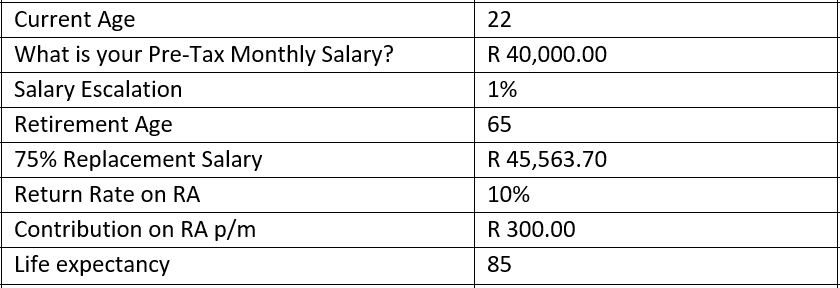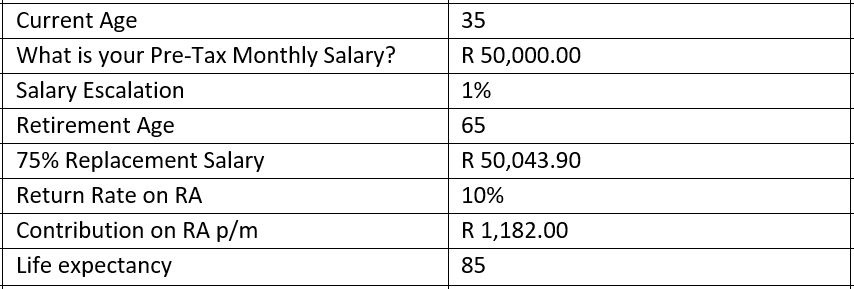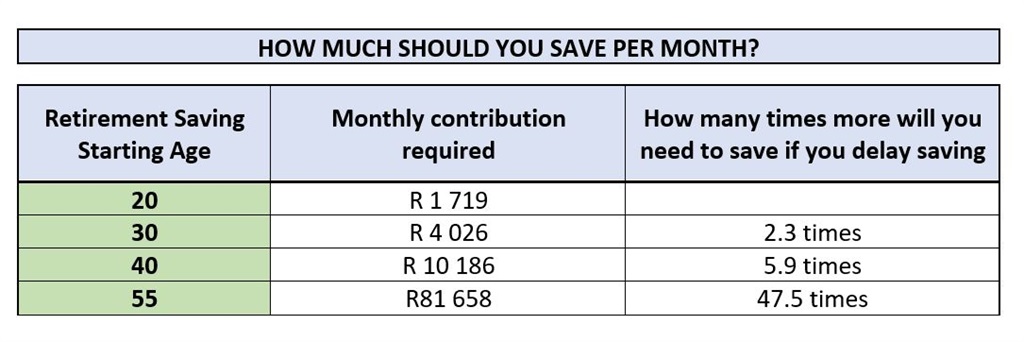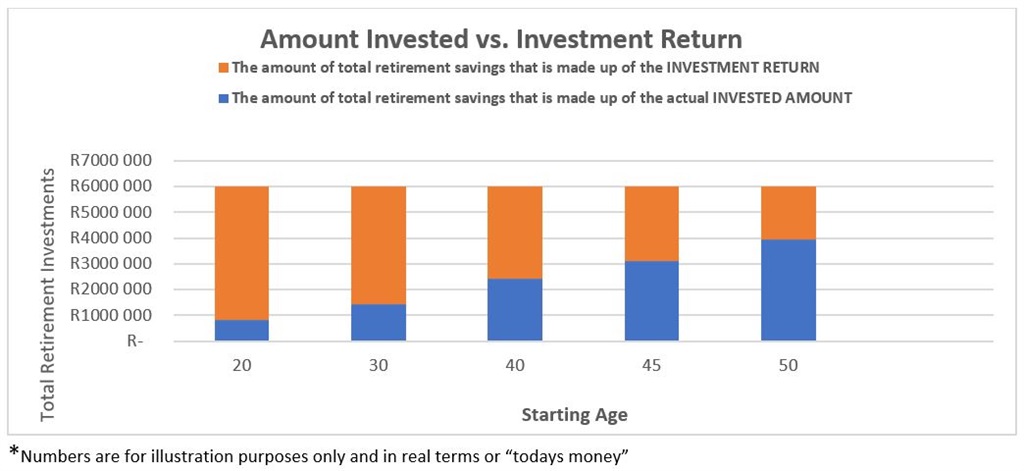
Compound interest.
That’s a term we often hear financial planners use a lot.
And it’s for good reason that they bang on about it: when it comes to paying off long-term debt, such as your mortgage, or saving for retirement, every cent counts.
This is why the quicker you pay off your debt, the more you can save towards your retirement, according to FNB experts.
- Starting to save for retirement in your 20s versus starting to save for retirement in your 30s
While "74% of South Africans have a retirement plan in place, only 6% can afford to retire comfortably", says the financial services provider (FSP).
The FSP uses the example of Annie, a fictional character to illustrate how a little goes a long way.
"If Annie increased her contribution by R100 pm and contributed R400 from year 2 of saving, she would have more than double."
- How it works
If Annie started saving at the age of 22 and increased her retirement contribution by:
5% p/a = R3 950 703.82
10% p/a = R8 929 928.83
R100 extra monthly = R9 191 198.35
The projected value of her investment at retirement would be as follows:
In the first scenario, her savings last her 10 years and 3 months, post-retirement.
In the second scenario, her savings last her 20 years and 11 months, post-retirement
In the third scenario, her savings last her more than 20 years and 11 months, post-retirement.
Compare the above scenario with Annie delaying her retirement savings to her mid-30s.
- How it works
If Annie started saving at the age of 35 and increased her retirement contribution by:
5% p/a = R3 922 777.57
10% p/a = R7 110 368.55
R100 extra monthly = R4 157 800.61
The projected value of her investment at retirement would be as follows:
In the first scenario, her savings last her 9 years and 1 months, post-retirement.
In the second scenario, her savings last her 20 years and 11 months, post-retirement
In the third scenario, her savings last her 9 years and 9 months, post-retirement.
Retirement planning is easy to put off because many of us do not like to think of getting older and no longer being able to work. But the truth is every little cent you put away towards your golden years makes a huge difference in the long term.
- What of you start off earning less than Annie?
Say you want to have a lump sum of R6 million at retirement, says Ester Ochse, Product Head: FNB Integrated Advice. That should give you a sustainable income of R25 000 per month (increasing with inflation) until the age of 90.
If you are earning about that much now, that would mean having to do a lifestyle downgrade, depending on your age and your financial commitments, so R25 000 is a fairly conservative amount.
Ester provides the following estimation of how much you'd need to start saving to reach that lump sum of R6 million.
Read more | 4 reasons cashing out your retirement fund when you change jobs is a bad idea
The invested amount versus the amount of total retirement savings that is made up of the investment return is also worth considering, with an investment of just under R900 000 at the age of 20 possibly being worth five times that amount at the age of 60, while an invested amount of just under R4 million at the age of 50 could potentially earn you only half of that in 10 years, says Ester.
"The moral here is that the earlier a person starts saving for retirement, the more they can benefit on the effects of compound interest.
"The quicker you pay off debt, the quicker you can add to retirement savings," she adds. "So be conscious of paying off debt as soon as possible.
"For many young people the idea of saving for retirement seems like something that needs to be done only when one is much older, more settled, or has paid off debts. But then we hear the scary statistic highlighting that only 6% of South Africans can afford to retire financially independent. That is a truly worrying statistic and something that needs to be changed for the better over time," says Ester.
She defines being financially free in your retirement years in the following terms:
These are Ester's five tips for making retirement the golden years you hope for money-wise.
1) Set your retirement goals and work out how much you need for those goals
"For example, someone that wants to regularly travel in retirement will need more in retirement than someone that wants to be a homebody."
2) Continue to budget in retirement
"Critically, look at your budget now and see how many of those expenses will carry on into retirement. For example, groceries will continue into retirement but traveling to work and back will not."
3) Make provision for increased medical cover and expenses in retirement
"Getting older generally means more medical expenses, ensure that you work that into the budget. Medical inflation is notoriously higher compared to consumer price inflation; therefore, you need to take this into account."
4) Make sure that you invest in the right solution for the right time horizon
"Solutions you invest in need to be appropriate for your needs. Some solutions protect you against the risk of outliving your pension and other solutions don’t give you protection against longevity risk but provide you with flexibility on the income that you select annually.
Read more | Your five-year plan: how to plan your retirement effectively
"Do your research and get advice from appropriately qualified and registered financial service providers."
5) Preserve your retirement savings
When you change an employer and have a pension fund from the previous employer, preserve your retirement savings in one of the vehicles that are available like a preservation fund or the new employers pension fund.
The reason why most people do not retire comfortably is because they do not preserve their pension when changing jobs. This will help towards the effect of compound interest and is a good practice in the long run.
























